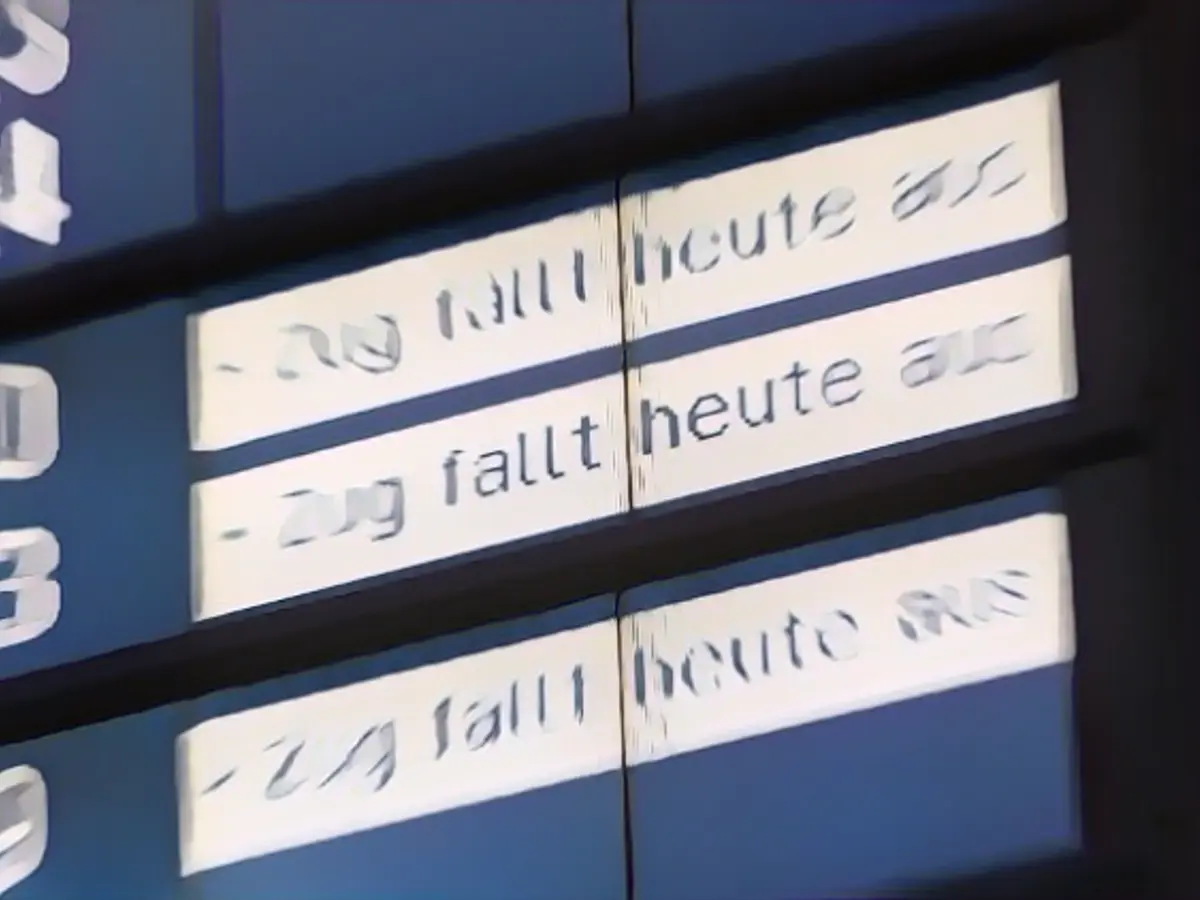Germany faces long rail strikes
It is the next escalation in the wage dispute at Deutsche Bahn: the members of the train drivers' union vote in favor of the possibility of an indefinite strike. This could result in rail service disruptions lasting several days.
Rail travelers could face several days of strikes in the coming year. The members of the train drivers' union GDL have cleared the way for indefinite industrial action in a ballot, as GDL boss Claus Weselsky announced in Frankfurt am Main. 97 percent of the voting members were in favor of this.
"Overall, our colleagues have sent a clear signal," said Weselsky on the result. 75 percent approval was required for indefinite strikes. According to Weselsky, the turnout was more than 70 percent. The union had recently promised not to call for industrial action up to and including January 7 - after that, however, the vote gives Weselsky and his members the opportunity to strike on the railroads for days on end. "What comes next will be stronger, longer and tougher for customers," announced the union leader in comparison to the previous warning strikes.
The GDL and Deutsche Bahn have only been negotiating in the current wage dispute since the beginning of November, but have quickly become entangled. After the second round, Weselsky declared the negotiations to have failed and subsequently initiated a ballot of GDL members.
A central sticking point in the conflict is the reduction in weekly working hours for shift workers on full pay demanded by the GDL. The union wants a reduction from 38 to 35 hours. Deutsche Bahn considers this to be unachievable, partly due to the shortage of skilled workers. The union is also demanding, among other things, an increase of 555 euros per month as well as a tax and duty-free inflation compensation bonus. Among other things, Deutsche Bahn has already held out the prospect of an eleven percent increase - albeit for a period of 32 months.
Longest GDL strike lasted 127 hours
Following a ballot, strikes no longer have to be limited in time as a matter of principle. "We are so responsible that we will not strike forever," said Weselsky recently. However, further 24-hour strikes will not be enough.
In previous collective bargaining rounds, strikes lasting several days were not uncommon. The longest GDL strike at Deutsche Bahn to date took place in May 2015 with 127 hours (5 days plus 7 hours) in passenger transport and 138 strike hours (5 days plus 18 hours) in freight transport. At that time, however, it was already the eighth strike since the start of the wage dispute. In 2021, the GDL struck for around five days.
Ballots are required for longer strikes, as this is the only way to ensure that a broad majority of members support the union leadership's strategy. For the employees, every day of strike action means a loss of income. Trade unions do compensate for the loss of wages and salaries from the strike fund, but usually not in full. The employees therefore send out a signal by ballot that they are prepared to make this financial sacrifice.
In the current wage dispute, the union has twice brought most trains to a standstill with 20 and 24-hour warning strikes in passenger transport. Together with the industrial action by the railroad and transport union EVG, there have been four warning strikes on the railways this year.
Read also:
- Why there is still no EU funding for green Saar steel
- 3 billion Saar Fund is unconstitutional
- Abrupt end to e-car subsidies
- The chemical industry has little confidence
The ongoing wage dispute at Deutsche Bahn has led to the members of the train drivers' union GDL voting in favor of potentially engaging in an indefinite strike on the German railroad, which could cause significant disruptions to rail services. If the GDL proceeds with the indefinite strike, it will be the longest strike by the union on the German railroad, surpassing the 127-hour strike in 2015.
Source: www.ntv.de








